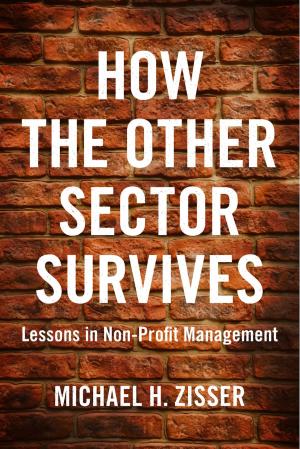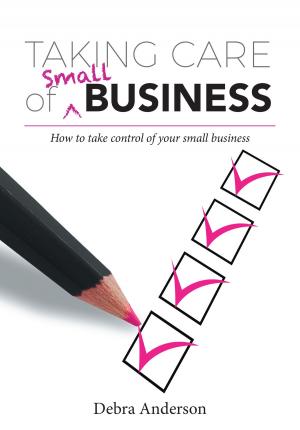You're so Funny ... Daddy!
Learning How to Communicate With Your Children Using Humor.
Nonfiction, Family & Relationships, Parenting, Fatherhood| Author: | Comedian Nazareth | ISBN: | 9780989437509 |
| Publisher: | BookBaby | Publication: | January 1, 2017 |
| Imprint: | BookBaby | Language: | English |
| Author: | Comedian Nazareth |
| ISBN: | 9780989437509 |
| Publisher: | BookBaby |
| Publication: | January 1, 2017 |
| Imprint: | BookBaby |
| Language: | English |
Was your father funny? Are you funny with your children? My name is Nazareth Rizkallah. I’m a Dad as well as a professional comedian. Before my oldest son, John, was born, I became interested in learning how to father a child. My career allowed me to spend quality time with and interview influential men from pastors, rabbis, leaders, to politicians. I found out from my interviews that the way a father treats his children would have a powerful impact on the way his children will raise their children. Like it or not, a father will leave a legacy. According to D. Charles Williams, Ph.D. in The Life Cycle of Father-Son Relationships, as children, sons idolize their dads and think they can do anything. This identification is most often demonstrated by a son’s imitation of his father’s behavior by walking like him, talking like him or wearing his clothes or shoes. At this age, a son wants so much to please his father and receive his approval and acceptance. Years later, my organizations, Comedy Crusade, Inc. and Comedy Crusade Academy, sent out a survey to thousands of fathers, in our fan base and on Social Networks, asking them to answer few questions. The goal from the survey was to find out if fathers who deliberately joke and laugh with their children, came from homes that their father did the same thing. The overwhelming response, from the survey, was, yes. Let me emphasize: Deliberately. If you have a habit of telling your kids you love them and hugging them on a daily basis it didn’t just happen. It is something you worked on consciously until it became a daily habit. Smiling and laughing is a wonderful habit to have. Using the habit will become so natural we don’t even have to think about it. It will be a natural action or reaction. My Dad passed away in 1995 at the age of 66. I loved my Dad and I named my son after him. When I remember my father, I remember him laughing. He laughed a lot. Although life did not treat my Dad well in his last days, he passed away with a smile on his face. I remember that during my childhood, he always gave us the opportunity to joke with him. He never felt disrespected when we joked with him. My mother, on the other hand, was just the opposite. We had to be serious around her. I do the same with my children. I always make sure they can joke with me. There is always laughter around our home. You might say, Nazareth: “You’re a comedian, there has to be laughter in your home.” Even if I were an accountant, I would still want to make sure that there is laughter in my home. In the survey we conducted, men, when asked if their fathers were funny, 66% responded with Yes, 26% responded with No, and the other 8% were in the gray. But when asked if their own children think they are funny, 61% responded with Yes, 9% responded with NO, and 30% checked sometimes. But the important question that was asked in the survey, the one that is very important to our book, was completely consistent with what I expected: Do you try to be funny with your children? 79% responded with Yes, Only 2% responded with No and19% checked occasionally. I think this demonstrates the need for this book. “My parents were very strict and I don’t want my children to say that about me one day.” If only I can get a dollar for every time I heard this statement from a Dad, I’ll be banking at the same bank Bill Gates does. The desire is there but most fathers lack the method of doing that. And that is what this book will help you do. It will give you time-proven methods and ideas that, if applied, will change the image your spouse and children hold of you. Laughing and joking with your son or daughter is a great way to connect and strengthen father-child relationship. When laughter is shared, it unites people together and increases happiness. It was also interesting from the survey to find out that most fathers want to be funnier at home and want to instill laughter in the home, but they just don’t know how to do it.
Was your father funny? Are you funny with your children? My name is Nazareth Rizkallah. I’m a Dad as well as a professional comedian. Before my oldest son, John, was born, I became interested in learning how to father a child. My career allowed me to spend quality time with and interview influential men from pastors, rabbis, leaders, to politicians. I found out from my interviews that the way a father treats his children would have a powerful impact on the way his children will raise their children. Like it or not, a father will leave a legacy. According to D. Charles Williams, Ph.D. in The Life Cycle of Father-Son Relationships, as children, sons idolize their dads and think they can do anything. This identification is most often demonstrated by a son’s imitation of his father’s behavior by walking like him, talking like him or wearing his clothes or shoes. At this age, a son wants so much to please his father and receive his approval and acceptance. Years later, my organizations, Comedy Crusade, Inc. and Comedy Crusade Academy, sent out a survey to thousands of fathers, in our fan base and on Social Networks, asking them to answer few questions. The goal from the survey was to find out if fathers who deliberately joke and laugh with their children, came from homes that their father did the same thing. The overwhelming response, from the survey, was, yes. Let me emphasize: Deliberately. If you have a habit of telling your kids you love them and hugging them on a daily basis it didn’t just happen. It is something you worked on consciously until it became a daily habit. Smiling and laughing is a wonderful habit to have. Using the habit will become so natural we don’t even have to think about it. It will be a natural action or reaction. My Dad passed away in 1995 at the age of 66. I loved my Dad and I named my son after him. When I remember my father, I remember him laughing. He laughed a lot. Although life did not treat my Dad well in his last days, he passed away with a smile on his face. I remember that during my childhood, he always gave us the opportunity to joke with him. He never felt disrespected when we joked with him. My mother, on the other hand, was just the opposite. We had to be serious around her. I do the same with my children. I always make sure they can joke with me. There is always laughter around our home. You might say, Nazareth: “You’re a comedian, there has to be laughter in your home.” Even if I were an accountant, I would still want to make sure that there is laughter in my home. In the survey we conducted, men, when asked if their fathers were funny, 66% responded with Yes, 26% responded with No, and the other 8% were in the gray. But when asked if their own children think they are funny, 61% responded with Yes, 9% responded with NO, and 30% checked sometimes. But the important question that was asked in the survey, the one that is very important to our book, was completely consistent with what I expected: Do you try to be funny with your children? 79% responded with Yes, Only 2% responded with No and19% checked occasionally. I think this demonstrates the need for this book. “My parents were very strict and I don’t want my children to say that about me one day.” If only I can get a dollar for every time I heard this statement from a Dad, I’ll be banking at the same bank Bill Gates does. The desire is there but most fathers lack the method of doing that. And that is what this book will help you do. It will give you time-proven methods and ideas that, if applied, will change the image your spouse and children hold of you. Laughing and joking with your son or daughter is a great way to connect and strengthen father-child relationship. When laughter is shared, it unites people together and increases happiness. It was also interesting from the survey to find out that most fathers want to be funnier at home and want to instill laughter in the home, but they just don’t know how to do it.















